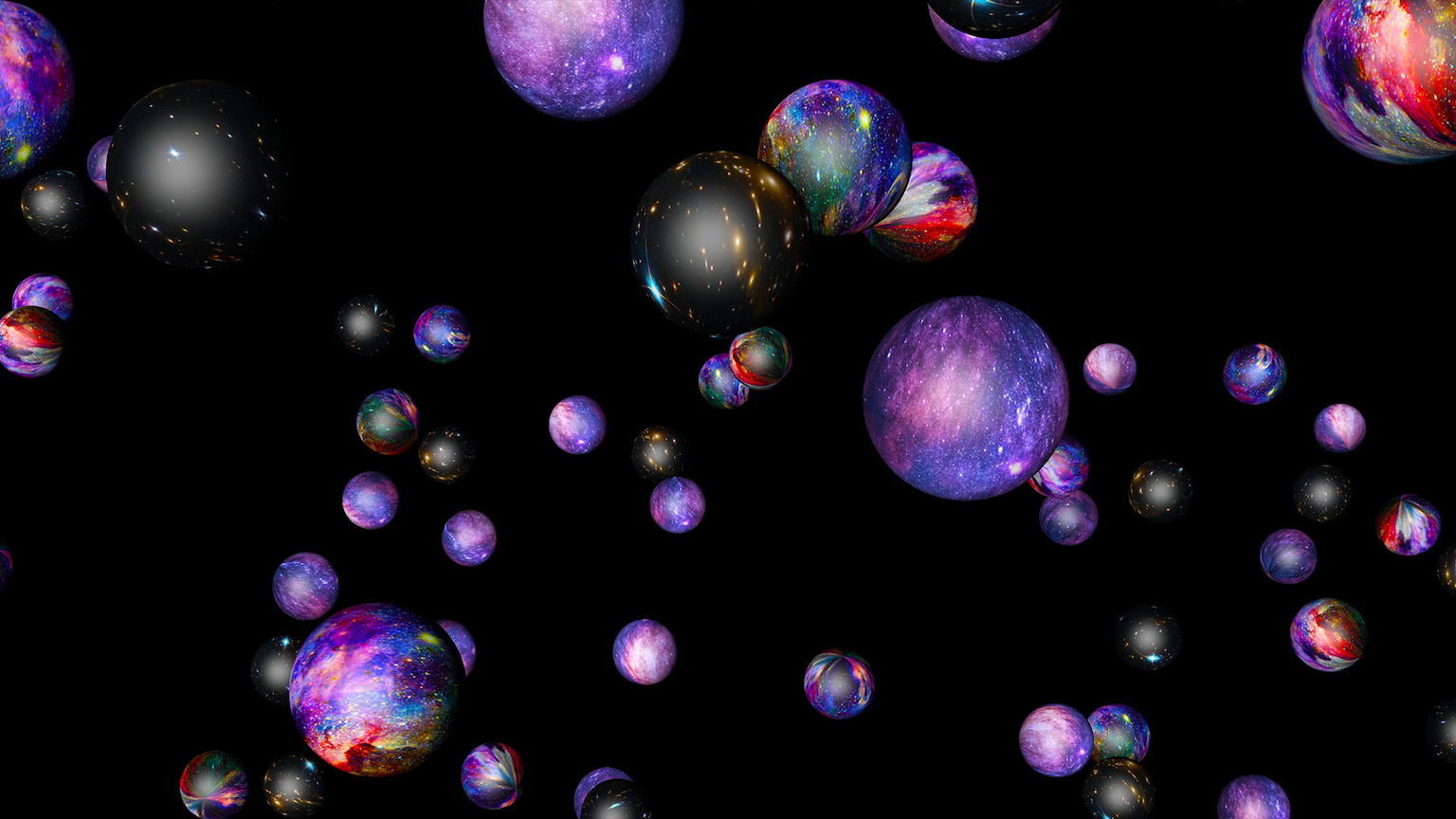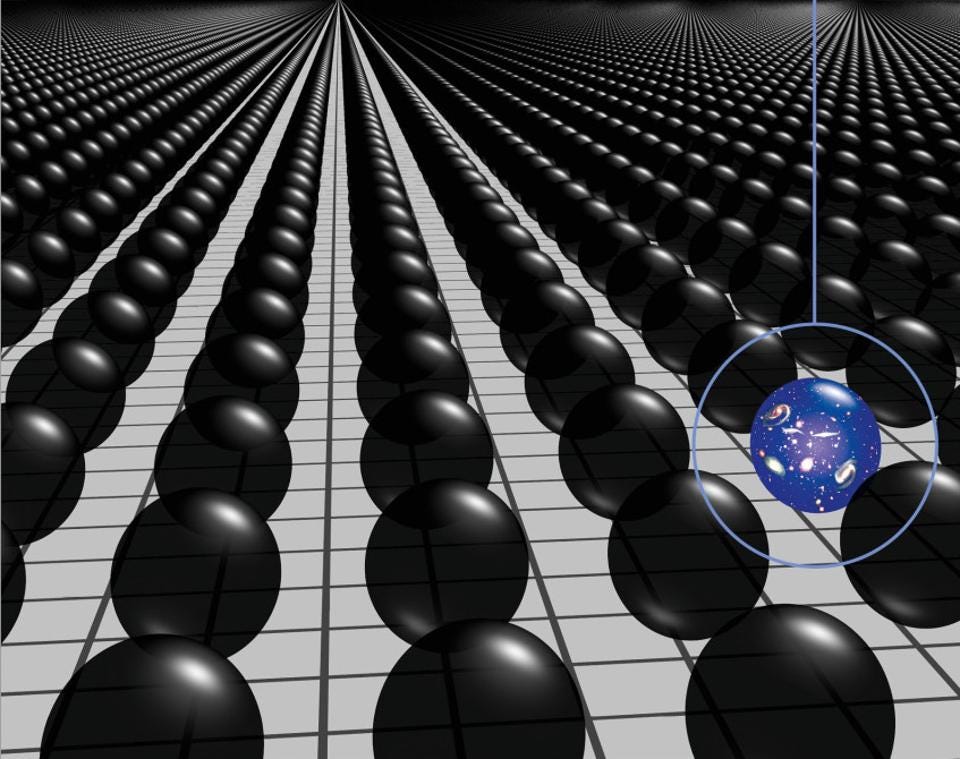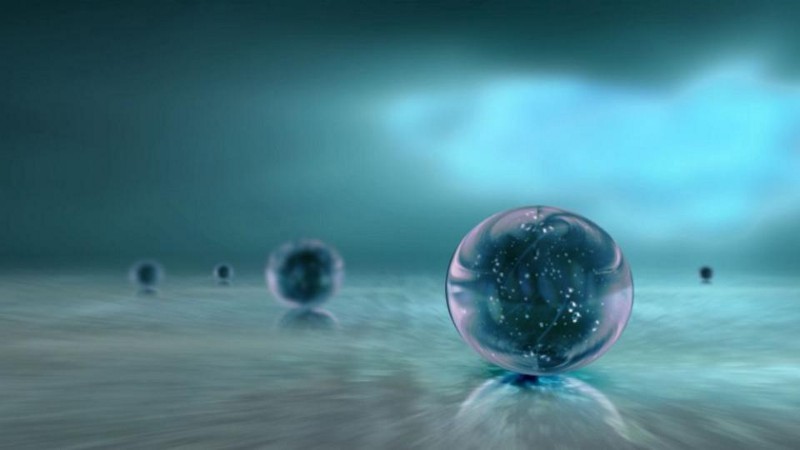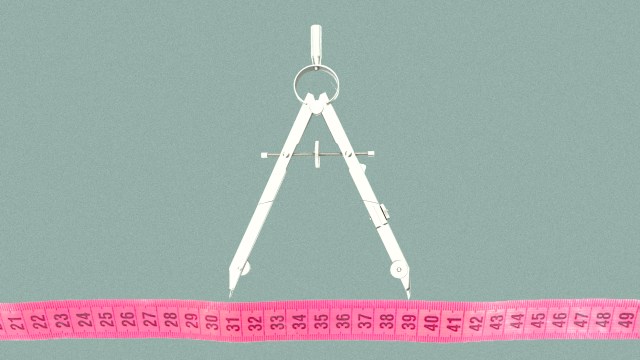Other than Doctor Strange, is the Multiverse good for anything?
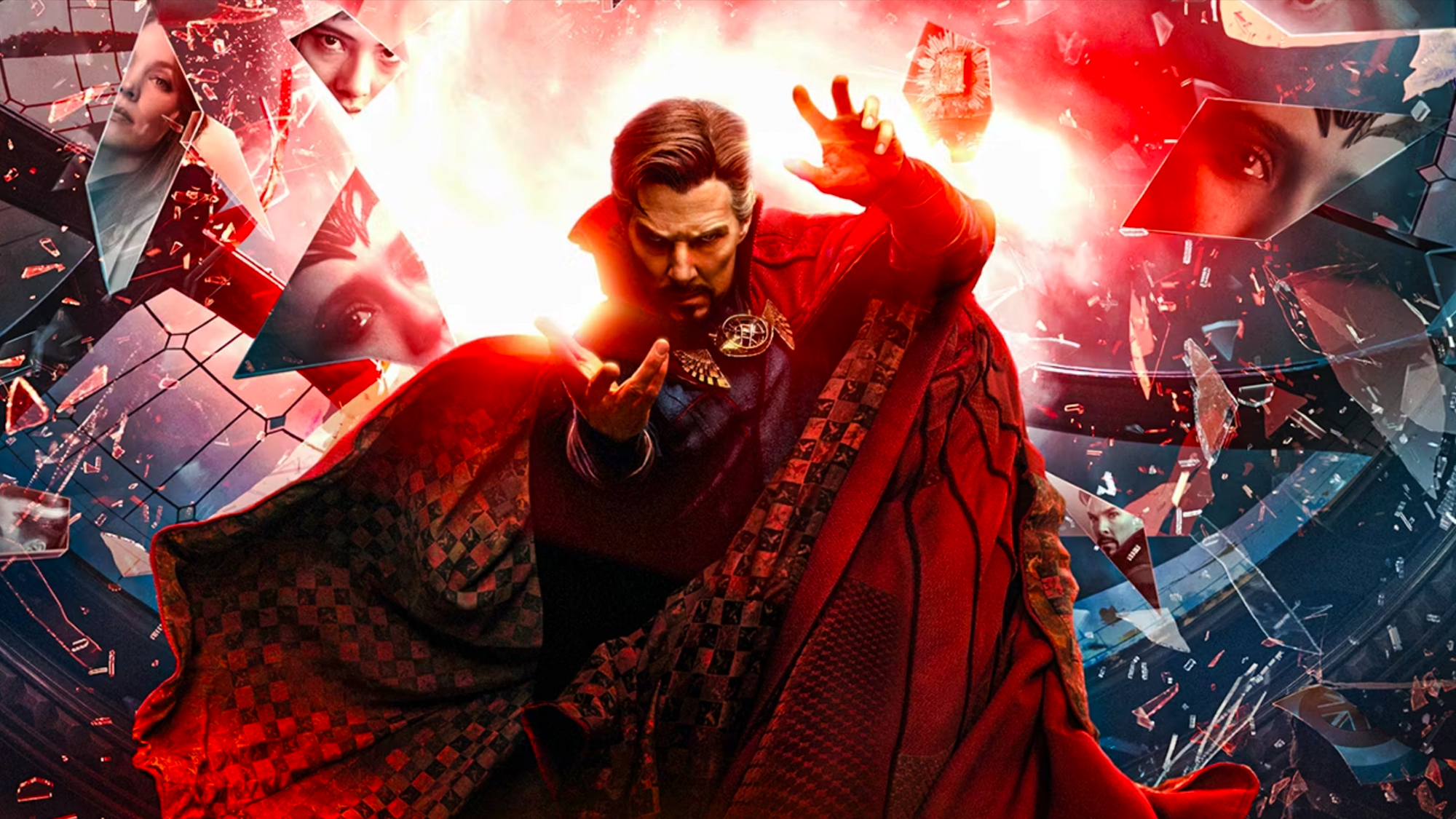
- There is no good reason to believe the Multiverse exists. So, what is the idea good for? Quite a lot, actually.
- The idea of a Multiverse predates any of its modern incarnations in science. It appears throughout mythology, and has been a topic in science fiction for more than a century.
- The Multiverse helps us explore and understand the intersections of fate and chance in our lives.
There is no good reason to believe the Multiverse exists. Marcelo and I have consistently hit on that theme here at 13.8. Marcelo is a theoretical particle physicist, and I am a theoretical astrophysicist, and we have both argued that the idea of infinite, parallel Universes has zero experimental or observational support. Indeed, even the theoretical basis for the Multiverse is tenuous. It turns out to be more of a bug rather than a purposeful feature in the theories. So, what is the Multiverse good for?
Quite a lot, it turns out.
The marvelous Multiverse
This weekend I used Father’s Day to force my son to attend Doctor Strange In The Multiverse Of Madness with me. While I raised my son on Marvel comics, and he was a big fan of the Marvel Comics Universe in the earlier years, he no longer feels much affinity for it. I am still a huge fan and, happily, we both liked the movie.
Since I was the science advisor for the first Doctor Strange movie, I was really keen to see where they went with this installment. I was also interested to see how they handled the idea of the Multiverse, which is a huge part of the storyline in the actual comics Marvel Comics produces.
But why, if I am not a fan of the Multiverse in science, would I be so interested in it as fiction?
This question leads to a simple but important point. The idea of a Multiverse — of parallel versions of ourselves, our lives, and our world — predates any of its modern incarnations in science. Earlier examples of the idea proliferate across fiction and mythology. That makes sense. As a device, the Multiverse allows us to explore a central issue of being human: the stubborn power of chance.
How many examples can you think of in your life where just a small detail could have changed your fate? Had you not missed that flight, you would never have met the love of your life. Had you stepped off the curb a second earlier, you would have been hit by that bus. Some examples are less straightforward: If you had attended this university rather than that one, how might the trajectory of your life have changed?
Crank this line of questioning up to the scale of history and we end up with worlds where Hitler was killed in one of the many plans to assassinate him, or worlds where Kennedy’s assassin missed his shot. Scale it up again, and the fate of the entire planet shifts as the comet that was going to wipe out the dinosaurs gets tugged just a millimeter to the left out near Jupiter, diverting its course and sparing the Earth. No dino apocalypse, no humans.
A deeply human concern
Every day, all of our lives hover over a long menu of possibilities. We can never understand why we end up living just the ones that manifest for us. Standing helpless before the ruthless gods of chance, we turn to stories about how “it was meant to be this way,” or “this is how God (or the gods) planned it.” But somewhere, deep inside, those answers are never fully satisfying. Why did the gods choose this path, and not the others? Did they know about all the others?
Hence the Multiverse. Hence the fictional dream, the narrative exploration of all those paths not taken and their consequences. Some version of the Multiverse has been with us in myth or fiction for a long time, because we need it. We need it not as a reality, but as a story to explore — one that helps us make sense of the actual story we are living.
Hindu cosmology gives us Indra’s net, a cosmic mesh of possibilities with a jewel at the intersection of each thread, and a Universe nestled within each jewel. Science fiction is modern literature’s main vehicle for exploring the possibilities of other Universes and parallel Universes. The idea has been popping up since the origin of the genre more than a century ago. H.G. Wells explored versions of it, as did Fredrik Pohl, Philip K. Dick, and Robert Heinlein. These authors explored their Multiverses well before the modern version of the Multiverse began popping up in science, and especially in cosmology. Versions of the parallel Universe idea have also appeared outside the genre, in movies such as Sliding Doors (1998), About Time (2013), or even the remarkable Groundhog Day (1993).
The point to consider here is that there is a profound emotional pull to pondering all those other versions of us. That is why the Multiverse is like catnip to novelists and screenwriters. As crazy as the idea might seem, it is grounded in a deeply human concern. It’s worth noting that in Marvel’s Multiverse, each of those other versions get labels. (We live on Earth #616, in case you were interested.)
So, yes, the Multiverse is an important idea — for fiction. We need it. It helps us explore and understand the intersections of fate and chance in our lives. If a story needs the Multiverse and wants to pretend there is some science to back it up, I am okay with that. The “Multiverse as science” idea, used for fictional ends, is fine. But when this fiction gets adopted by science as if it were real, that is a problem.
